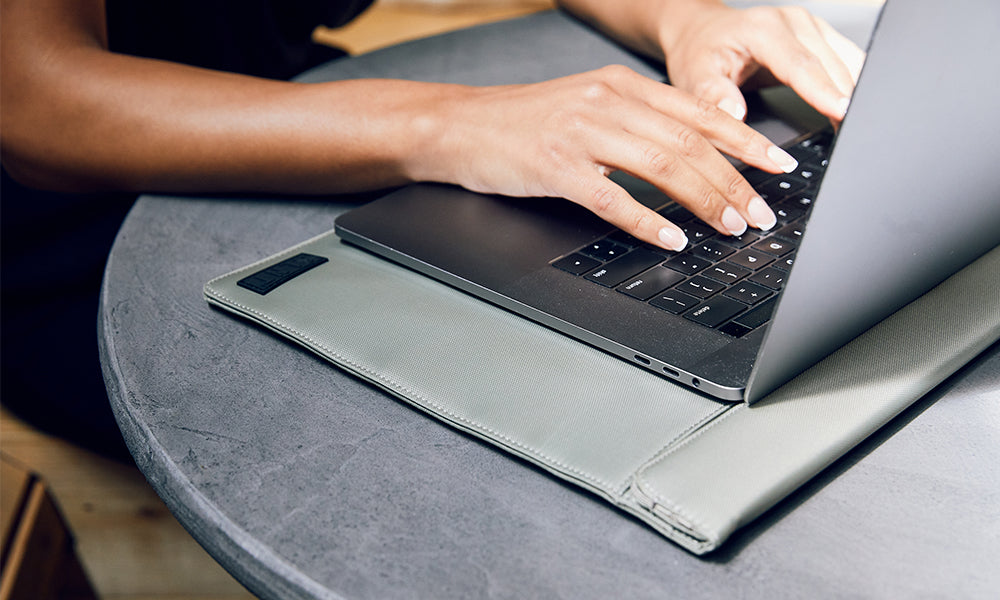Shop
Screen Hacking: How to Protect Yourself from Cybercriminals and Keep Your Information Safe

Screen hacking, also known as screen capturing or screen recording, refers to the unauthorized recording or capturing of someone's screen or webcam footage. This can be done through malicious software or screen-recording software installed on a device without the user's knowledge or consent.
Hackers can use electromagnetic interference (EMI) to meddle with the electrical signals on your devices, making it possible to manipulate information via Wi-Fi connections. Modern smartphones, which use electrical signals to sense a user's finger movements, have made this a reality.
Cases of cyber criminals hacking screens are becoming more common and can result in stolen sensitive information, such as passwords, credit card numbers, or other personal information.
10 Ways to Prevent Screen Hacking
Fortunately, there are steps you can take to avoid being a victim of screen hacking. Here are some tips to keep you and your information safe:
1) Keep your software and operating system current.
Regular updates often include security patches that help prevent hacking attempts. Make sure to keep your operating system, as well as all other software, up to date. This also enables you to avoid cyber threats like viruses or malware.
2) Use anti-virus software.
Anti-virus software can help protect your computer from malware, which can be used to record your screen without your knowledge. Make sure to use reputable anti-virus software and keep it updated.
3) Be cautious when downloading software.
Downloading software from untrusted sources can increase your risk of getting hacked. Always download software from reputable sources, and be careful when downloading any software that claims to improve your screen-recording experience.
4) Use strong passwords.
Weak passwords make it easier for hackers to access your computer. Make sure to use strong passwords, which are at least 12 characters long, and include a mix of letters, numbers, and symbols. It's smart to change your passwords regularly.
5) Be wary of suspicious emails.
Phishing scams are a common way for hackers to access your information. If you receive an email that seems suspicious, don't click on any links or download any attachments. Instead, contact the sender to verify if the email is legitimate.
6) Enable two-factor authentication.
Two-factor and multi-factor authentication add an extra layer of security to your accounts by requiring you to enter a code in addition to your password. This makes it much more difficult for hackers to access your information.
7) Keep your webcam covered.
If you don't need to use it, it's best to keep yourwebcam covered. This prevents hackers from being able to access the footage and use it for malicious purposes. We recommend webcam covers, which are useable and made for all devices.
8) Use screen-recording software wisely.
If you need to make a screen recording, download software only from reputable sources. Be extra cautious when using screen-recording software to record sensitive information, such as financial or personal information.
9) Be aware of your online activities.
Be mindful of what you're doing online and what information you share. Only enter confidential information if you know a website is trustworthy.
10) Use a virtual private network (VPN).
A VPN can help protect your online activity by encrypting your internet connection. This makes it much more difficult for hackers to access your information.
Guard Yourself Against Hackers: Go SLNT
Screen hacking is a growing threat, but there are steps you can take to avoid being a victim. By following these tips, you can help protect yourself and your information from the dangers of screen hacking. Stay vigilant, be cautious, and take the necessary precautions to keep yourself and your information safe.
We recommend securing your mobile device with a Faraday bag to ensure your digital security. SLNT® gear has you covered. Faraday cages keep hackers out and your private information safe. For the latest in everyday Faraday gear, check out the new Faraday bags to ensure continuous data protection.
Recent Articles
Newsletter
Join Our Community: Privacy, Security, Health Updates
